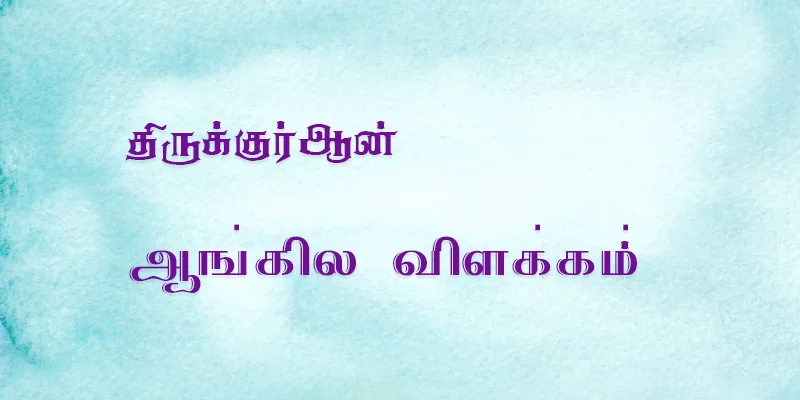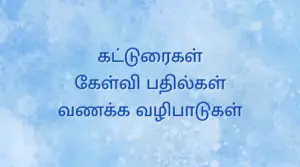278. To whom would Prophet Esa, who is alive, pay his Zakat money to?
Many scholars have wrongly translated this verse (19:30-32) of the Quran. Due to the wrong translation, a set of people cite this as a proof to assert Prophet Esa is dead, and these verses even when correctly translated does not convey directly or indirectly he is dead.
Hence we need to know the correct translation with proper reasoning.
1. I am a slave of God, I was revealed a scripture from Him, He made me His messenger. (Verse 19:30)
2. I remained blessed, wherever I was. I was commanded to perform worship, and pay Zakat (compulsory alms) as long as I am alive. (Verse 19:31)
3. (19:32). He made me feel good towards my mother. He did not render me unfortunate or as an oppressor.
Most scholars have translated the verses as above.
Based on these translations, people following wrong ideologies raise a few questions.
Verse 19:31 says “ I was commanded to perform worship and pay Zakat (compulsory alms) as long as I remain alive”
How can Prophet Esa pay Zakat while he remains alive raised above in the heavens. His inability to pay Zakat translates into meaning he is dead. The argument put forth by these people is it is mandatory for Prophet Esa to pay only as long as he is alive.
Though the argument by these people is correct in terms of the translation cited above, but when the translation itself is wrong, their arguments fall by the wayside.
Of the three verses cited above, we do not find issues with the first two. The translation of the third verse (19:32) into Tamil and as well English convey a wrong meaning.
Hence let’s look into the correct meaning of this verse (19:32.)
We find the phrase “ Wa barran bi walidati” in this verse meaning “ being good towards my mother.
Most of the translators have committed mistakes in connecting the words “being good towards”
At first we need to understand, in Tamil there ought not be a confusion in placing the connecting words. But in Arabic there are chances of misplacing the connecting words.
For example in Tamil the phrase, “ I consider Ibrahim as a good and proficient person, can be translated to Arabic only as Ibrahim is considered a good and proficient person by me.
In Tamil the placement of the connecting word ‘good’ is at the rear part of the phrase, but we will find the same connecting word placed in the forefront of the phrase in Arabic.
Let’s have this in mind while we analyse verse (19:32).
While we look to connect the phrase ‘ to being good towards my mother’ we find two possible spots.
One possibility is verse 19:30 where it says “He made me a messenger”. On connecting with this it continues as “ He made me a messenger and to being good towards my mother”.
Most of the scholars have connected the phrases as cited above.
The same can be connected as a continuation of verse 19:31 as, “I was commanded to be good towards my mother, keep worshipping, and pay Zakat as long as I am alive”.
This is the meaning that could be derived from this verse and seems to be indeed correct.
We need to connect (words that come as a continuation at the same time conveying collective characteristics) with the immediately available word. The rules of Arabic grammar states, when a situation arises a word cannot be connected immediately as a continuation, then a word away in the sentence can be taken to follow suit.
The verse (19:32) states ‘ ‘To being good towards my mother”. Ignoring the existing provision to connect this with its previous verse 19:31, an attempt to connect it with verse 19:30 is uncompatible.
It would be correct to mean as ‘ As long as I am alive I was commanded to be good towards my mother and pay Zakat.
Hence it is to be understood as mandatory on the part of Prophet Esa to pay Zakat not only while he is alive but also while he is being good to his mother.
To say it otherwise, Allah lays down two conditions for Zakat to be mandatory on Prophet Esa, they are: .
1. Prophet Esa should be alive
2. And he should be in a position to be good towards his mother.
Only when both conditions are satisfied Zakat becomes mandatory for him.
These conditions were fulfilled by him, only before being raised to the heavens. He was alive and also in a position to do good to his mother.
The moment he was raised up to the heavens, the condition stating Prophet Musa is alive continues and doing good to his mother becomes non-existent.
This also strongly proves Prophet Musa is alive, and remains,
A. A sign of the arrival of the dooms day.Verse (43:61)
B. And those who believe in the scriptures will not not lose faith in him, before his death. Verse 4:159.
C.Those before him have died.Verse 5:75.
Similar to saying Prophet Esa is not dead, these verses also prove Prophet Isa was raised up to the heavens.
There is also another question being raised, as….
Would Prophet Esa pay Zakat when he returns ? Would he perform salah? Would he be in a position to do good to his mother?
When Prophet Esa descends on this earth from the heavens he will not come down as a prophet but as a member of the nation of Prophet Muhammad. Whatever laws were revealed to him before will not be implemented by him. And will adjudicate on the basis of laws revealed to Prophet Muhammad.
Hence whatever type of worship specified and was made mandatory for him before being raised up to the heavens will not be carried out by him, nor the zakat specified would be required to be paid by him.
When Prophet Esa revealed that he was commanded by Allah to perform salah and and pay Zakat, was a specific type, suiting the time when it was etc; revealed, hence on his return to earth he would not be required to continue the same nor follow that instruction to pay Zakat.(regarding percentage, and other specifics)
He will not be considered to have transgressed those commandments in case he follows the way of worship of present -day’s worship or pays Zakat as per today’s procedure.
To know more on whether Prophet Esa is already dead or will return to earth and die, please refer to explanation points 93, 101,133, 134, 151, 342, and 456.

